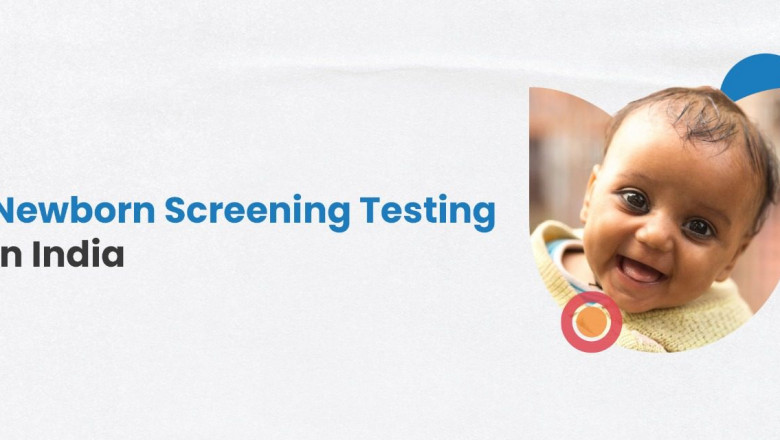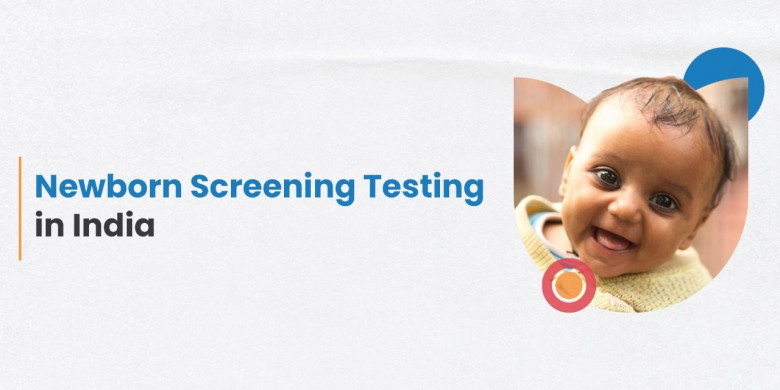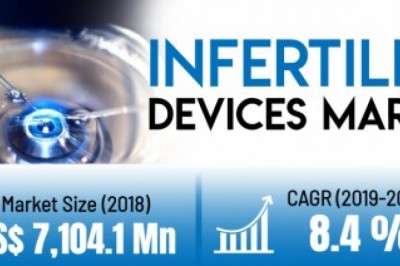views

Newborn screening (NBS) is the technique of screening babies for abnormalities that might cause serious sickness or mortality if not recognized and treated early. Delay or omission in diagnosing an Inborn Error of Metabolism (IEM) or other disorders detectable from birth, such as hypothyroidism, G6PD deficiency, and many more, may result in a significant mental decline in the affected babies. Newborn Metabolic Screening for a variety of metabolic and other abnormalities, allowing for intervention before the onset of symptoms or mental and/or physical disability. Neonatal screening is performed in various developed nations as a means of preventing morbidity and death. Newborn Screening Kits are used by several nations to screen newborns for up to fifty illnesses, depending on the occurrence.

Newborn Screening Kit helps to identify illnesses; it is a coordinated, complete system that includes education, follow-up of aberrant findings and confirmatory testing, diagnosis, treatment, management, periodic outcome assessment, quality assurance, and program evaluation.
Although the actual incidence in India is still under research, it is supposed that hearing problems and congenital cardiac abnormalities have an incidence of roughly 4:1000 and 5:1000, respectively, while the incidence of IEMs is approximately 1:1000. This high occurrence is a result of our country’s high prevalence of consanguinity. Many children acquire mental retardation, learning impairments, autism, dyslexia, behavioral abnormalities, and academic backwardness if undetected and mistreated. The diagnosis, treatment, and management of these affected babies impose a substantial financial and emotional strain on the parents. The most reasonable and cost-effective method of averting such tragedies would be to implement an NBS program that detects the majority of avoidable or curable IEMs and other genetic diseases, if not all of them. Therefore, all metropolitan hospitals in India should perform Newborn Metabolic Screening for at least the most prevalent diseases: Congenital Hypothyroidism, Congenital Adrenal Hyperplasia (CAH), and Glucose-6-Phosphate Dehydrogenase Deficiency (G6PD) deficiency. For rural areas, certain centers must be set up in the government hospital itself to cater to the need of the newborns, and they must make it mandatory that after every newborn birth, they must undergo this test.
Common Diseases and Their Prevalence
Mental retardation’s most prevalent avoidable cause is congenital hypothyroidism. The frequency is 1:2500–2800 live births worldwide. The most prevalent cause of CH, accounting for 75 to 80 % of all cases, is thyroid dysgenesis. The actual incidence of this condition in India is unknown. However, it seems to be much greater than in the rest of the globe. Not only is it the most prevalent avoidable cause of mental retardation, but the treatment cannot be afforded by everyone.
G6PD insufficiency is the most prevalent enzyme deficit, affecting about 400 million individuals worldwide. Additionally, it is the most prevalent genetic condition in India. Although the actual prevalence is unknown, a range of 2-27.9% has been observed by several studies in diverse areas. It is an X-linked recessive condition that manifests with hemolytic anemia and persistent jaundice and causes substantial morbidity and death in children.
In nations such as the United States, Malaysia, Singapore, Taiwan, Hong Kong, the Philippines, the Middle East, and Europe, NBS for G6PD has been effectively applied. Public and pediatric health professionals in India have long recognized NBS for G6PD deficiency. The implementation of a screening program will significantly reduce hospital admissions due to acute hemolysis, hence lowering the need for blood transfusions and dialysis.
PKU, MSUD, homocystinuria, methylmalonic academia, propionic academia, and isovaleric academia are some other common health concerns that be detected by the NBS method. The majority of these conditions are characterized by life-threatening episodes and may leave the afflicted kid with lasting neurological complications if left undiagnosed and untreated.
Need for Universal Newborn Screening Implementation and Proper Execution With Proper Awareness
One must make a note that the Newborn Genetic Screening program’s success is only when there is continuous monitoring of affected infants, even after the test is conducted. There are instances (especially for births in public hospitals) in which the affected infant’s health improves and the parents discontinue treatment without the physicians’ knowledge. This defeats the screening program’s intent. In India, it is difficult to implement newborn screening universally, although increased awareness and initiatives over the last decade have resulted in more newborns getting checked each year.
The success of the current newborn screening program can only be possible with the help of government and awareness campaigns, that aid in making newborn genetic screening a mandatory test and a national program for preventing high infant mortality rates and securing the future health of newborns with initial diagnosis and treatment plans provided by a medical expert.
In addition to Modular & Fully Automated Newborn Screening kit, Trivitron offers reagent kits, manual equipment, and fully automated equipment for newborn screening.












